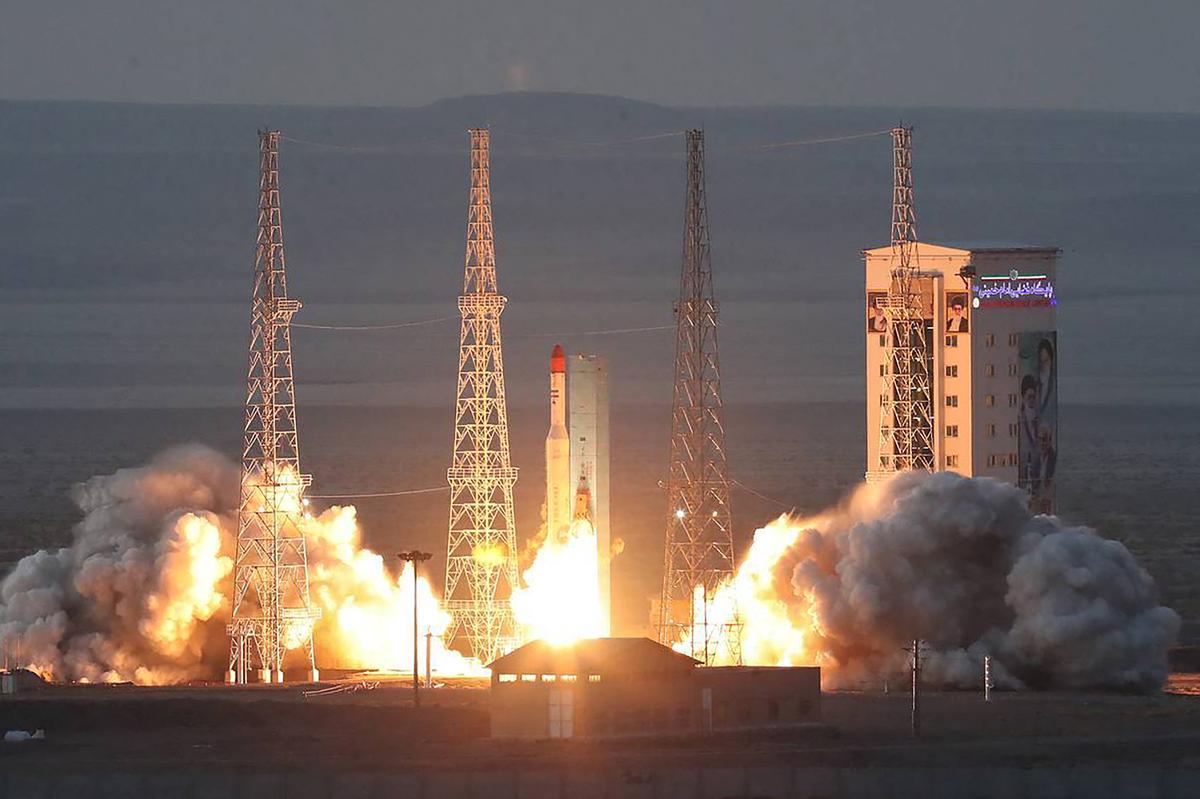Iran Successfully Launches Space Mission Amid International Tensions
MANAMA (Bahrain), Dec 6: On Friday, Iran announced the successful launch of a satellite, a move that the West fears may enhance the nation’s ballistic missile capabilities. This launch was executed using Iran’s Simorgh rocket, which has experienced several failed attempts in the past, and took place at the Imam Khomeini Spaceport in the Semnan province, the hub of Iran’s civilian space endeavors.
The Simorgh rocket carried what Iran labeled an "orbital propulsion system," along with two research instruments, into a 400-kilometer orbit. Such technology would enable Iran to adjust satellite orbits, a capability that has long been a goal for Tehran. The launch successfully transported a payload of 300 kilograms, surpassing the weight of previous successful missions.
As of now, there has been no immediate independent verification of the launch’s success, and the U.S. military declined to comment when approached.
This announcement arrives amidst escalating tensions in the Middle East due to Israel’s ongoing conflict with Hamas in Gaza, and while a fragile ceasefire remains in Lebanon. The United States has previously indicated that Iran’s space launches violate a UN Security Council resolution aimed at preventing activities related to ballistic missile technology capable of delivering nuclear weapons. Importantly, UN sanctions on Iran’s ballistic missile program expired in October 2023.
According to a U.S. intelligence assessment released in July, Iran’s advancements in space-launch vehicles, including the Simorgh, could expedite the development of intercontinental ballistic missiles (ICBMs) as they employ similar technological foundations.
Under the more moderate administration of former President Hassan Rouhani, Iran had slowed its space program to avoid aggravating tensions with the West. However, since the ascension of the late hard-line President Ebrahim Raisi in 2021, the space program has seen renewed momentum. Raisi tragically passed away in a helicopter crash in May.
Current President Masoud Pezeshkian, who has shown willingness to negotiate with the West regarding sanctions, has yet to disclose a clear strategy concerning Iran’s aspirations in space. The recent Simorgh launch marks the first significant action from his administration’s civil space program, while Iran’s paramilitary Revolutionary Guard successfully conducted a launch in its separate program in September.
Intercontinental ballistic missiles can potentially be utilized for nuclear weapon delivery. Following the fallout of its nuclear agreement with global powers, Iran is now enriching uranium near weapons-grade levels. The head of the International Atomic Energy Agency has repeatedly warned that Tehran possesses enough enriched uranium for "several" nuclear arms if it decides to produce them.
Iran, however, maintains that it is not pursuing nuclear weapons and insists that its space and nuclear programs are strictly for peaceful purposes. Despite this, U.S. intelligence agencies and the IAEA have reported that Iran operated a structured military nuclear program until 2003.


Leave a Reply